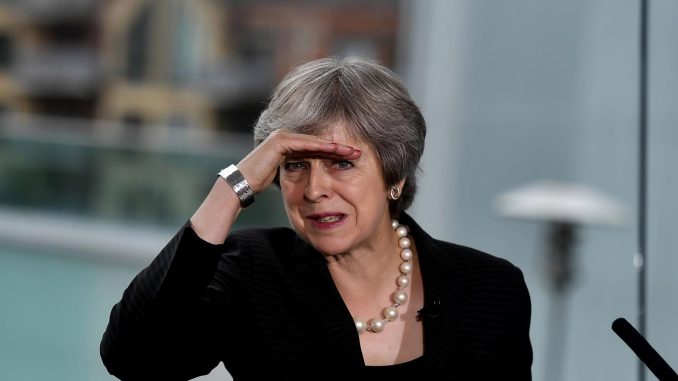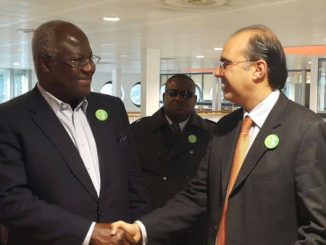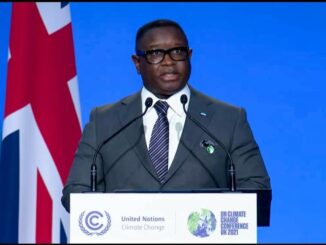
-

Britain Tightens Grip on Africa Post Brexit
-
 Mon, Aug 27, 2018
Mon, Aug 27, 2018 - According to the British Prime minister’s Office, Teresa May’s visit to Africa is to “renew partnership between the UK and Africa, as the UK moves towards Brexit.” Is there more than meets the eye?
-
A statement released by the Office of the British Prime Minister, Teresa May reveals that the PM will be leading a large delegation of senior ministers and a wide-ranging trade envoy to Nigeria, South Africa, Kenya this week. She will be the first British Prime Minister to visit Sub-Saharan Africa since 2013, and the first to go to Kenya for more than 30 years; but is there more to this visit than trade partnerships?
According to the statement; “This visit comes at a time of enormous change across Africa with a unique opportunity, as the UK moves towards Brexit, for a truly Global Britain to invest in and work alongside African nations, with mutual benefits.
“The Prime Minister’s central message will be focused on a renewed partnership between the UK and Africa, which will seek to maximise shared opportunities and tackle common challenges in a continent that is growing at a rapid pace – from the Sahara to South Africa.
“She will use a speech on the opening day of the visit in Cape Town to set out how we can build this partnership side by side with Africa, particularly by bringing the transformative power of private sector trade and investment from the UK to a continent that is home to 16 per cent of the world’s people but just three per cent of FDI and three per cent of global goods trade.”
-
Taking this into consideration, one can not help but see the true reasons behind this high delegation visit to unarguably the three leading African Economies in Africa and biggest ‘past’ colonies of Britain.
This also confirms the words of the great Pan-African and Legal luminary, Professor Patrick Loch Otieno Lumumba of Kenya when he said in essence that Britain’s main aim of leaving the European Union was because of the opposition she receives from countries like Germany and France. She feels better off without opposition and her decision to ‘re-colonize’ all her former colonies which she has successfully put under one umbrella called the ‘Commonwealth’.

Professor Patrick Loch Otieno Lumumba
With control over the Commonwealth Nations, Britain would be ‘Great’ again by influencing key decisions in these countries and controlling their economies and resources. As stated in the statement from the minister’s office, Britain wants to build stronger ties with Africa as they approach leaving the European Union, the question is ‘Why?’ Who will this so called ‘partnership’ favour – Africa or Britain?
Speaking ahead of the proposed visit, May was quoted as saying:
“Africa stands right on the cusp of playing a transformative role in the global economy, and as longstanding partners this trip is a unique opportunity at a unique time for the UK to set out our ambition to work even closer together.
“A more prosperous, growing and trading Africa is in all of our interests and its incredible potential will only be realised through a concerted partnership between governments, global institutions and business.
“As we prepare to leave the European Union, now is the time for the UK to deepen and strengthen its global partnerships. This week I am looking forward to discussing how we can do that alongside Africa to help deliver important investment and jobs as well as continue to work together to maintain stability and security.
“I am proud to be leading this ambitious trip to Africa and to become the first UK Prime Minister in over 30 years to visit Kenya.”
In my opinion this confirms the words of Kwame Nkruma in his book titled “Neo-Colonialism, the Last Stage of imperialism” published in 1965 when he said our colonial masters will one day return and except Africa is united with one army, one currency and no borders, we will fall again. There is no doubt that our colonial masters have been ruling Africa through our gullible leaders and comprador-bourgeoisie; but now, they are coming to directl



